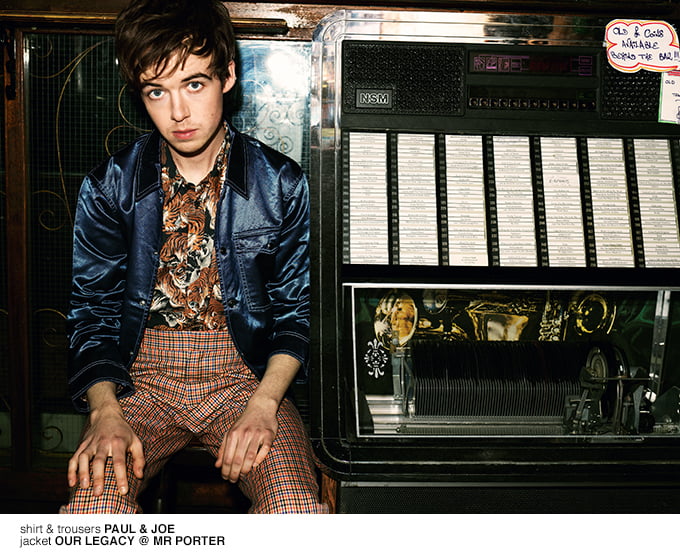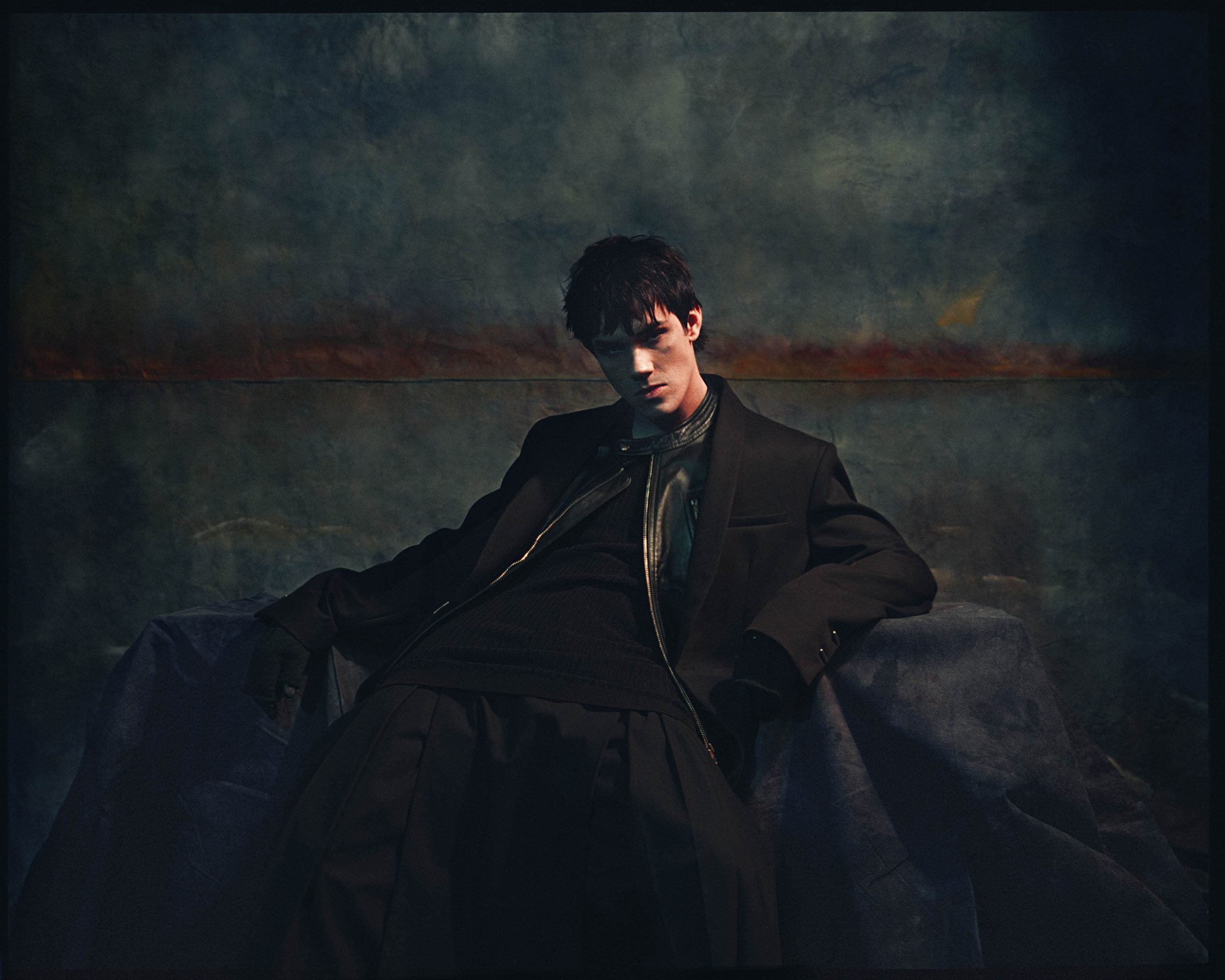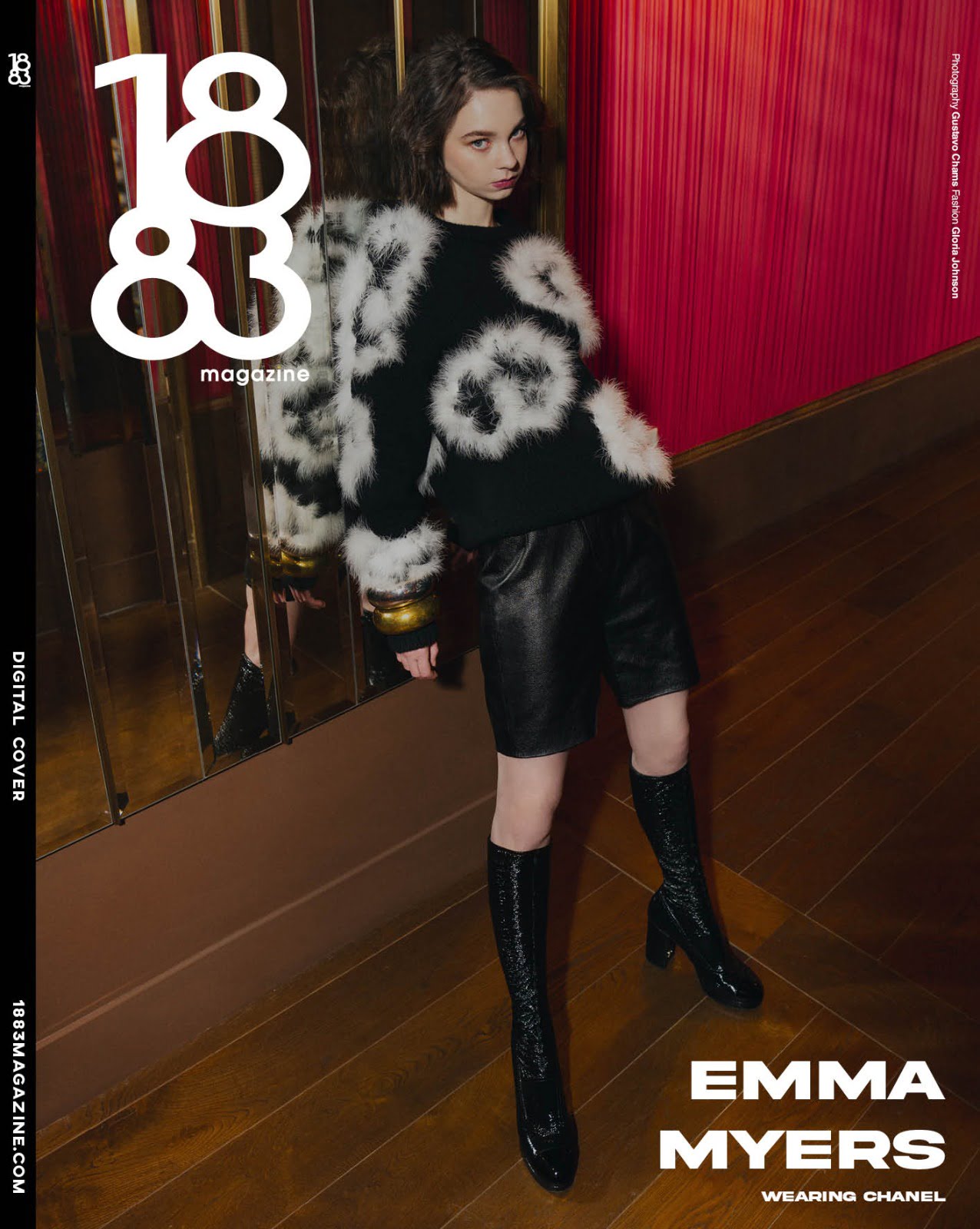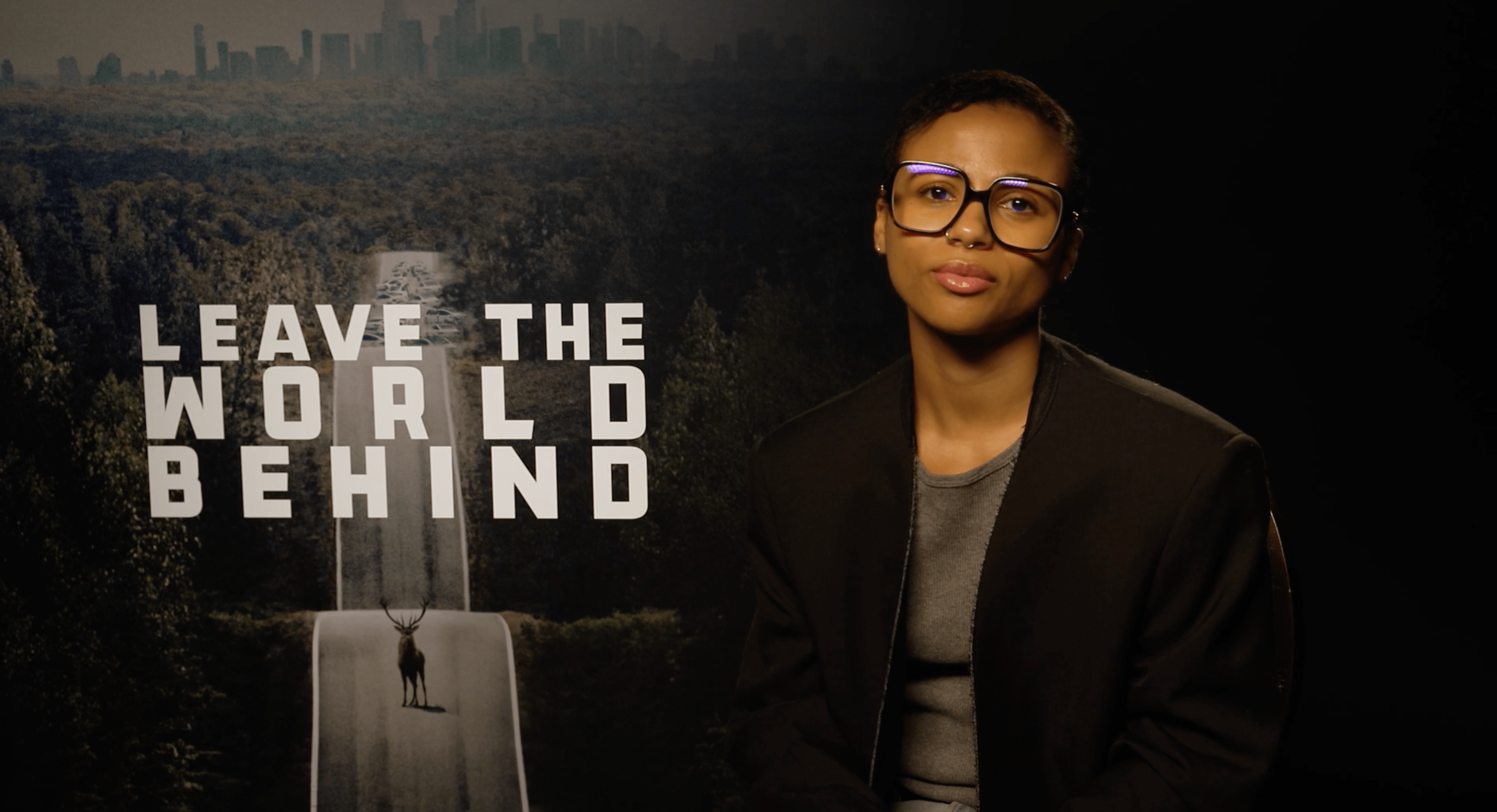
Alex Lawther

On a sunny Sunday afternoon in London, I have a chance to chat with up and coming actor Alex Lawther. Articulate, humble and very talented, Lawther talks about recent roles, challenges and type casting.
He is about to start a run of The Jungle, a co-production between The Young Vic and The National at The Young Vic based on the refugee crisis in Calais. His recent comedy teen drama The End of the F***ing World airs on E4 and Netflix and has been likened to the 1973 cult classic Badlands. The 22 year old has also starred with Benedict Cumberbatch in The Imitation Game based on 1940’s technology to crack the enigma code and has recently finished shooting Goodbye Christopher Robin in which he stars as Christopher Robin opposite Domhnall Gleeson and Margot Robbie. Come take a peek.

Where and when did you first become interested in theatre?
I suppose since school I was always doing plays with friends and writing sketches in my spare time. I never thought it possible to do it professionally; it was just always something that I loved doing. It just always seemed inaccessible. But then when I was sixteen there was an open casting to play a lead in a play on the West End and I auditioned and fortunately got that job. And because of that job I was able to start working.
What was your school like during this process?
School was very supportive which was lucky. I missed my AS year and then in my second year of college crammed two years into one because I had only done one job at that point and I didn’t know still whether it was going to last. I wanted to get my exams as some sort of safety. So I finished school with everyone else with A Levels.
Did you ever train anywhere or did you adopt a ‘learning on the job’ mentality?
It was always in the back of my head to do training and I get a lot of pleasure from work that really pushes me. Having not trained, I had the idea that I needed to keep up. I didn’t ever want to get too comfortable.
What agent are you with at the moment Alex?
I am with an agent called Nicki from Conway Van Gelder Grant. I met Nicki when I did my first play called South Downs and I have been with her ever since. It’s been lovely because I have grown up under her wing as it were. So she has been very present and very keen for me to continue my education. She’s seen me grow from a boy into a young man I suppose so it’s nice to have that personal relationship.
You have done a huge range of TV, theatre and film playing quite quirky characters. What role has challenged you most so far in your career and why?
I always think that it’s the current role as you are starting from scratch every time. The play I am in rehearsals for now called The Jungle, in which I play a British man called Sam, has been very challenging. The story is about the refugee and migrant camp in Calais. My small part of the story is playing a British volunteer whose political views are quite different from my own. Objectively, from what is on paper, he seems to be quite a right leaning politically. Getting my head around finding sympathy for him at the beginning of rehearsal was quite tricky. But now I feel that I am hopefully getting closer to something a bit more human. But it always feels like each new job I am working on is the hardest one as on each job is you are starting from scratch.



Your current cast members from The Jungle are of global heritage, some with refugee backgrounds who have passed through Calais themselves. How much did you know about the refugee camp before you started this project?
I had been to Calais a few times in 2015 and 2016 to spend a little bit of time there. As a British person I was deeply ignorant of how complicated the situation is. It is very easy to see things one way or the other as either black or white, but the more I have been involved in this project the more stories we hear, the more I realize how little I know and how basic my assumptions have been. Everyday I learn something new at rehearsals, and recognize how ever deeper my ignorance is.
I am sure you are learning a lot everyday in rehearsals!
The refugee crisis isn’t one that is on the news anymore, especially on the French coast, and I think there is a lack of discussion about what is going on. Unless you are really involved and making an active effort to assist, it is really hard to know where to go for information. So it’s not surprising that lots of people are unaware of what happened in Calais and what still exists there. Although The Jungle was dismantled there are still are 1000+ people on the French Coast.
Is raising awareness for the situation one of the reasons why you wanted to be a part of this play?
The writers Joe Robertson and Joe Murphy set up a theater in Calais for around eighteen months as a starting point for re-energizing that discussion. For me, it’s just very rare an actor to be asked to be a part of something that you genuinely feel is a story that needs to be told. It’s inevitable that, in the space of one hour or two hours or however long our show ends up being, things will be missed out and mistakes will be made. I feel very, very humbled to have a small part in asking questions about the situation. There is a lot of great writing out there but it is rare that it is both so very much of the moment and exciting.
Your works have premiered across a range of festivals including BFI Film Festival and Toronto film Festival. What is your favourite to date?
The Berlin Film Festival, especially in spring, is amazing. The city is so wonderful and mysterious and it’s a joy and pleasure to be able to have been a part of it.
You started of in theatre in The South Downs with Minerva, and you have just finished filming Goodbye Christopher Robin. Which medium do you prefer?
I don’t really know to be honest! My job is essentially the same. I think that I probably think of it as using a different muscle as an actor but that essentially you are serving someone else to tell a writer’s story. The main difference is with film the camera is right up in your face for close ups. I enjoy the space you have with theater and how you can use that space to tell a story. I also enjoy the slowness of things- how abstract time is. How we have a week left of rehearsals but we can make a discovery in the next hour or so when I go back after lunch, that will have been a consequence of 4 weeks worth of rehearsal. In film too time is sort of funny. It can be hyperactive when they are trying to get a shot done that is maybe the climax of the whole story but you only have ten minutes to shoot. It is a different rhythm. I am very lucky at the moment to get to try both.

You have recently been in a BBC adaptation of Howards End in which you play Tibby Schlegel – a character I find most amusing for his lack of filter!
He is a real pain in the butt! He has never had anything to fight against. He comes from a fairly wealthy family and because of his gender, being a man, he doesn’t to fight. How I have interpreted it from Forster’s text and Kenneth Lonergan’s adaptation, is that he is sort of hopeless because he has never had to stand up for anything.
He almost reminds me of being on the verge of sickly!
Exactly! He is entirely un-useful. He has opinions and thoughts and ideas but has never had to put them to the test because there is nothing in his life that has ever been there to test him. Yes he is very sickly, a sickly boy!
Where did you shoot that?
We shot that in studio in Twickenham but we also shot in Central London- in Parks and The British Museum. It was a particularly lovely one, it’s quite rare these days to have that budget.
You’ve won a variety of awards including Screen International ‘Star of Tomorrow’ and Young British Performer of the Year. How have these jump started your career?
To be honest, the conversation never really comes up in auditions about awards. You can win any number of awards but hopefully people aren’t going to just give you a role because of one. When you work more as actor it generates work.
You’ve been praised as having a talent for playing quite vulnerable roles. Do you ever feel stereotyped by a specific type cast?
It’s another interesting question. Type casting is a funny thing and, on one hand, even if you are playing the role that has good similarities with another you have played, it is still your job as an actor to treat them as individuals and start from scratch with every one. I suppose with every actor there is always a want to try something new and I think it is every actors fight to push against the boxing. I think it is a tricky on because the work you take is also down to whether a director or producer or casting director says yes or no.

How would you talk about the process of networking to get the roles?
I am terrible at networking but I think one thing I have seen is that there is no straight or clear way for how auditions work. Things can surprise you. For example, someone can come to a screening of a project you did a few years ago and then off the back of that you get something else later down the line. It mysterious. I feel when I have done my best job as an actor is when I have responded imaginatively.
Your character James in The End of the F***ing World opens the first episode by saying “I’m pretty sure I’m a psychopath.” Talk to me about the journey you took for that role.
He chooses that word as an almost desperate plea to be anything apart from normal. He worries about not having human emotions or an ability to have relationships with anyone else and saying that he is a psychopath is an easy way for him to get out of that fear that he may actually just be like everyone else.
How would you describe the relationship between your character James and Jessica Barden’s character Alyssa?
He pretends to fall in love with her to use her as an experiment really to see if she would be interesting to kill. I suppose there is a love story there but also companionship more than anything.
What are the strangest skills you have had to learn for a role?
I will shoot a film ’Les Traducteurs’ in a couple of month. In some ways it is great because I have no ties to the language as I didn’t speak before. So the words are all new and not nuanced. The problem is making sure that I don’t spend time solely thinking of the language but find the character within a different language that native speakers can connect with.
The End of the F***ing World is available now as an exclusive boxset on All 4
Interview Katie Rice
@katierice2299
Photographer Joseph Sinclair
@josephsinclair
Stying Krishan Parmer
@krishanparmar_
Grooming Petra Ninasellge
@petransellge
Location Bradleys Spanish Bar
www.bradleysspanishbar.com





